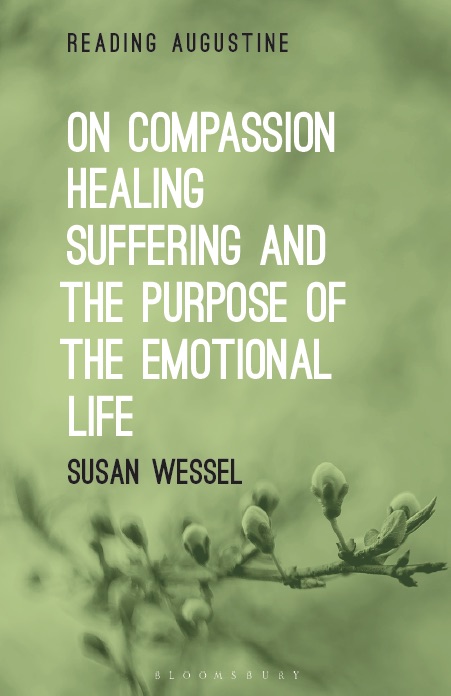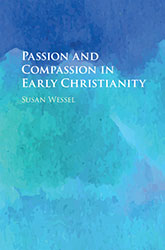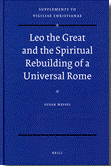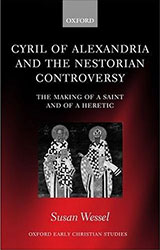-

Reading Augustine: On Compassion, Healing, Suffering and the Purpose of the Emotional Life
Reading Augustine: On Compassion, Healing, Suffering and the Purpose of the Emotional Life
Learn More -

Passion and Compassion in Early Christianity
Passion and Compassion in Early Christianity
Learn More -

Leo the Great and the Spiritual Rebuilding of a Universal Rome
Leo the Great and the Spiritual Rebuilding of a Universal Rome
Learn More -

Cyril of Alexandria and the Nestorian Controversy
Cyril of Alexandria and the Nestorian Controversy: The Making of a Saint and of a Heretic
Learn More
Translations
The Greek Life of St. Leo bishop of Catania (BHG 981b), text and notes by Alexander Alexakis, translation by Susan Wessel (Société des Bollandistes: Brussel, 2011)
“The Homilies that Cyril of Alexandria Delivered at the Council of Ephesus in the Summer of 431,” in Cyril of Alexandria and the Nestorian Controversy: The Making of a Saint and of a Heretic. Oxford Early Christian Studies (Oxford University Press: Oxford, 2004), 303-319
Articles in Periodicals and Collections
“Structures, Organizations, and Laws in Late Antique Christianity,” Oxford History of the Roman World, in progress
“Anger in Ancient Philosophy and Christian Thought,” in progress
“Compassion and Healing in Byzantium,” Emotions in Byzantium (Routledge: forthcoming)
“Leo the Great,” in ed. Philip L. Reynolds, Christian Law in the First Millennium (Cambridge: Cambridge University Press, 2019), 283-296
“Schmerz,” Reallexicon für Antike und Christentum, 1-29
“The Suffering of Christ, Humanity, and the Lepers in Gregory Nazianzen,” Scottish Journal of Theology 68, 4 (2015): 379-395
“Religious Doctrine and Ecclesiastical Change in the Time of Leo the Great,” in ed. Michael Maas, The Cambridge Companion to the Age of Attila (Cambridge University Press: New York and Cambridge, 2014), 329-345
“Theological Argumentation: The Case of Forgery,” in ed. Scott F. Johnson, The Oxford Handbook of Late Antiquity (Oxford University Press: New York and Oxford, 2012), 916-934
“The Formation of Ecclesiastical Law in the Early Church,” in ed. W. Hartmann, K. Pennington, The History of Byzantine and Eastern Canon Law to 1500 (The Catholic University of America Press: Washington, DC, 2012), 1-23
“The Theology of Agape in Maximus the Confessor,” St. Vladimir’s Theological Quarterly 55 (2011): 319-342
“The Morality of Disgust in John Chrysostom and Jerome,” Augustinianum 50 (2010): 147-162
“Human Action and the Passions in Nemesios of Emessa,” Studia Patristica 48 (2010): 3-13
“Memory and Individuality in Gregory of Nyssa’s Dialogus de anima et resurrectione,” Journal of Early Christian Studies 18 (2010): 369-392
“The Reception of Greek Science in Gregory of Nyssa’s De hominis opificio,” Vigiliae Christianae 63 (2009): 24-46
“The Politics of Text and Tradition in the Council of Constantinople III (AD 680/1),” Annuarium Historiae Conciliorum 38 (2006): 35-54
“The Nouthesia and the Law of Moses,” Byzantion 73 (2003): 530-542
“Forgery and the Monothelete Controversy: Some Scrupulous Uses of Deception,” Greek, Roman, and Byzantine Studies 42 (2001): 201-220
“The Ecclesiastical Policy of Theodosius II” Annuarium Historiae Conciliorum 33 (2001): 285-308
“Socrates’ Narrative of Cyril of Alexandria’s Episcopal Election,” Journal of Theological Studies 52 (2000): 98-104
“Nestorius, Mary, and Controversy in Cyril of Alexandria’s Homily IV (De Maria deipara in Nestorium, CPG 5248),” Annuarium Historiae Conciliorum 31 (1999): 1-49
